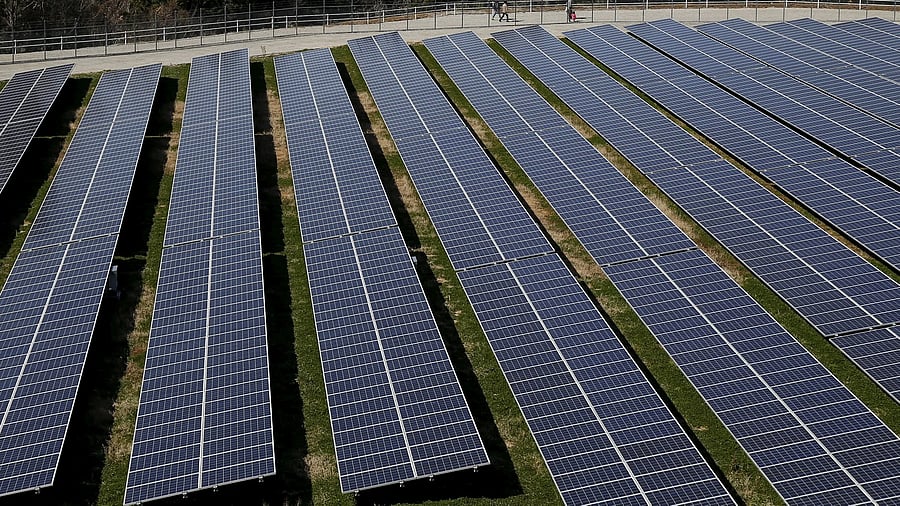
Solar panels are seen at a solar power facility. Image for representative purposes.
Credit: Reuters File Photo
New Delhi: India is on the track to achieve the target of producing 500 Gigawatts (GW) of electricity from non-fossil fuel sources by 2030, Union Minister for New and Renewable Energy Pralhad Joshi said on Wednesday.
“By 2030 our goal is to achieve 500 GW. We are on track. We have 162 GW in the pipeline. I am confident that we will achieve that goal,” Joshi said at an event organised by the International Solar Alliance.
The minister claimed that renewables now make over 50% of India’s total installed power capacity. India has achieved this five years ahead of the 2030 target given under the 26th United Nations Climate Change conference (COP26).
Joshi said that India has emerged as the world’s 3rd largest solar power producer. Over 20 lakh households have already been benefiting from solar power on their rooftop under the PM Surya Ghar Muft Yojana, he said.
“We have seen first-hand how decentralised solar transforms lives, brings light to rural homes, powers local health centres and gives new tools to our farmers. With PM Surya Ghar Muft Bijli Yojana, more than 20 lakh households are benefiting from solar power,” the minister said.
He announced that the eighth session of the International Solar Alliance (ISA) assembly would be held in New Delhi from October 27-30.
Launched by India and France at COP21 in Paris, the International Solar Alliance (ISA) is the largest treaty-based intergovernmental organisation from the Global South, bringing together 124 members. ISA is the first international organisation established and headquartered in India.
Ashish Khanna, Director General of ISA, said over 40 ministers from across the member countries are scheduled to participate in the eighth session of the ISA assembly.
“Global renewable energy is at an inflection point. It took oil 25 years to reach 1,000 GW. Renewables doubled that in just two years. For the first time, renewable generation has surpassed fossil generation. This is a decisive moment for the Global South to lead,” Khanna said.
“In this new energy landscape, ISA is emerging as a platform of aggregation—convening nations for collective action to drive large-scale solar deployment. Our vision is to accelerate this momentum by moving from commitments to concrete projects, from dialogue to delivery, and from potential to measurable impact,” he added.